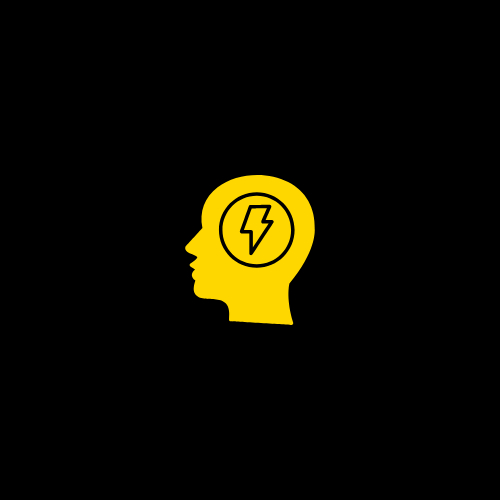You’ve read the books. Watched the videos. Tried the hacks.
Yet, you’re still searching. Still convinced the missing piece is some advanced strategy, some secret the experts aren’t telling you.
But what if the answer isn’t out there?
What if it’s been in front of you the entire time?
The truth is, complexity is a trap. A distraction. A way to trick yourself into believing you need more information instead of taking action.
Because the real solution? It’s not about more. It’s about better.
Mastering the fundamentals. Understanding first principles. Stripping away the noise until all that remains is what truly works.
And if you can do that, you won’t need another hack, another trick, or another guru’s advice.
You’ll finally have the answer.
Keep reading, and I’ll show you why.
The Illusion of Complexity: Why We Chase Advanced Strategies
We love to overcomplicate things.
It feels productive. It feels like progress. We convince ourselves that the key to success lies in advanced tactics, hidden frameworks, or insider knowledge that only the elite have access to.
That’s why people jump from one strategy to the next, always searching, always tweaking, but never mastering.
But why do we do this?
At its core, the obsession with complexity comes from two things: fear and ego.
1. Fear: The Perfect Excuse to Avoid Action
Complexity is seductive because it gives us an excuse.
If success is complicated, then failure isn’t our fault. We just “haven’t found the right method yet.” This gives us a perfect excuse to stay stuck in learning mode instead of execution mode.
After all, if we admit the answer is simple—if we acknowledge that we already know what to do—then we have no excuse left.
We’d have to face the uncomfortable truth that we aren’t taking action because we’re afraid of failure, rejection, or uncertainty.
So, we trick ourselves. We chase new information, new tools, new strategies… anything to delay the moment where we have to step up and actually do the work.
2. Ego: The Desire to Feel Smarter Than We Are
Complexity makes us feel intelligent. If something is hard to understand, mastering it must mean we’re special, right?
That’s why people love using big words, complex theories, and fancy frameworks. It’s not about effectiveness, it’s about status.
If we convince ourselves that success requires deep, intricate knowledge, then we can justify why we haven’t achieved it yet.
The irony?
The most successful people, the ones who actually get results, strip things down to the essentials.
They aren’t obsessed with looking smart. They’re obsessed with being effective.
Look at the people who actually succeed.
They don’t rely on magic formulas or secret techniques. They master the basics relentlessly.
Think about athletes. The best basketball players don’t obsess over trick shots, they drill footwork and free throws every single day.
The greatest musicians don’t chase gimmicks, they practice scales and timing until perfection is second nature.
It’s the same with business, fitness, learning and everything else. Complexity is a distraction. Simplicity is the real advantage.
And the moment you accept that, you stop searching for answers and start executing on what actually matters.
Simplicity scales. Complexity breaks.
When something is simple, it’s easier to execute. Easier to refine. Easier to repeat.
That’s why the highest performers aren’t chasing complexity, they’re stripping away the unnecessary until all that’s left is what actually works.
Bruce Lee said it best: “I fear not the man who has practiced 10,000 kicks once, but the man who has practiced one kick 10,000 times.”
How to Make Things Simpler (And More Effective)
- Cut the fluff. If something feels complicated, it’s probably because there’s extra noise. Remove what doesn’t matter.
- Find the core principles. Everything great is built on fundamentals. Master those before adding anything else.
- Prioritize execution over optimization. Most people tweak and plan endlessly. The best? They take action and refine along the way.
The people who get stuck are the ones who think they need more. More steps. More knowledge. More complexity.
The ones who win? They do less, but they do it better.
The Hidden Power of Mastering the Basics
The fundamentals are boring. Repetitive. Unsexy.
And that’s exactly why most people ignore them.
We’re drawn to the idea that success requires something extraordinary—a secret technique, an advanced strategy, a hidden shortcut that only the elite know.
But in reality, the people at the top aren’t doing anything special. They’re just executing the basics at a level most people aren’t willing to reach.
Think about it:
- The best writers don’t use complicated words, they master clear, simple communication.
- The best athletes don’t obsess over trick plays, they perfect their footwork, conditioning, and mechanics.
- The best entrepreneurs don’t chase trendy tactics, they refine their offer, dial in their messaging, and show up consistently.
It’s not about knowing more. It’s about doing the right things, over and over, until they become automatic.
But here’s the part people don’t want to hear: mastering the basics takes time.
And in a world obsessed with instant results, that’s the real challenge.
Because when you commit to the fundamentals, you don’t see immediate breakthroughs.
There’s no dopamine rush, no instant validation. Just slow, steady improvement until one day, everything clicks.
Most people quit before they reach that point. They assume they need something new, something more advanced.
But the ones who stick with it? They build an unshakable foundation. And that foundation is what separates the amateurs from the elite.
So the real question isn’t, What’s the best new strategy?
It’s, Have you mastered the basics?
Because if you haven’t, that’s the only thing standing between you and the results you want.
How Learning Really Works: The Role of Meaning & Connection
Most people don’t actually learn. They consume.
They read books, watch videos, take courses, but months later, they can’t remember or apply any of it.
Why? Because real learning isn’t about passively absorbing information.
It’s about meaning and connection; two things most people completely overlook.
1. Meaning: Why It Matters More Than Memorization
Your brain doesn’t remember random facts, it remembers what matters to you.
That’s why school feels useless for so many people.
They’re forced to memorize equations, historical dates, and definitions without any real connection to their lives.
The information goes in one ear and out the other.
But think about something that changed your perspective—a powerful book, a life lesson, or a moment that shook you. You didn’t have to “study” it. You just got it. It stuck because it meant something.
The same applies to skill-building.
If you want to retain what you learn, you need to make it meaningful. Instead of asking, What should I learn? ask, Why does this matter to me? How will this change my life?
The stronger the connection, the deeper the learning.
2. Connection: How Everything Clicks Together
The best learners don’t see knowledge as separate subjects. They see patterns. Connections. Overlaps between ideas that most people miss.
That’s why the smartest people in the world—whether in business, sports, or science—can take lessons from one field and apply them somewhere completely different.
- A marketer who understands psychology will always outperform someone who only knows ad strategies.
- A leader who studies history will make better decisions than someone who only reads business books.
- An athlete who learns about biomechanics will train more effectively than one who just follows a workout plan.
Everything connects. The more you link new ideas to what you already understand, the faster you internalize them.
This is why surface-level learning doesn’t work. If you’re just collecting random knowledge with no personal meaning or connection, it fades.
But when you actively link ideas together and apply them to your life, they stick.
And once you start learning like this, you don’t just remember more—you think better. You make smarter decisions. You cut through noise and see truth for what it is.
That’s how you level up, not by memorizing more, but by understanding deeper.
Active Recall: The Science of Retention & Why It Reinforces Fundamentals
Be honest…how many books have you read that actually changed how you operate?
How many YouTube videos, podcasts, or courses have you gone through, only to forget 90% of it a week later?
Most people aren’t learning. They’re consuming.
They think watching another video, reading another book, or taking another course will make them smarter.
But if you don’t remember what you learned, did you really learn it?
The truth is, your brain doesn’t retain what you don’t engage with.
You think you understand something just because you heard it once. But understanding isn’t the same as remembering—and remembering isn’t the same as mastering.
That’s why you need active recall.
What’s Active Recall? It’s Simple: Test Yourself or Forget Everything.
- Instead of re-reading your notes, close the book and recall the key points from memory.
- Instead of passively watching another tutorial, pause and explain what you just learned—out loud.
- Instead of thinking, Yeah, I get this, prove it. Teach it. Apply it.
Your brain is lazy! It won’t hold onto knowledge unless you force it to.
That’s why the best performers don’t just “review” what they learn, they challenge themselves to recall it, explain it, and apply it until it becomes automatic.
This Is Why the Basics Matter
The fundamentals don’t just sit in your brain collecting dust.
They become the mental shortcuts that make complex decisions effortless.
- The best speakers don’t memorize scripts, they’ve internalized communication.
- The best athletes don’t think about technique, they’ve drilled it until it’s instinct.
- The best entrepreneurs don’t scramble for answers, they’ve built frameworks they can recall in seconds.
That level of mastery comes from repetition, engagement, and recall, not from endlessly consuming information.
The takeaway? Stop passively learning. Start testing yourself.
If you can’t explain it without looking at your notes, you don’t know it yet.
First Principles Thinking: Stripping Knowledge Down to Its Core
Most people build on assumptions. They take what they’ve been told, what’s worked before, or what seems logical and they stack more ideas on top of it.
But what if the foundation is flawed?
What if you’re solving the wrong problem?
That’s where First Principles Thinking comes in.
Instead of accepting things at face value, you break them down to their absolute fundamentals, then rebuild from the ground up.
This is how the greatest thinkers, inventors, and problem-solvers operate.
Elon Musk didn’t ask, “How do I make a cheaper battery?” He asked, “What are batteries made of, and what’s stopping them from being cheaper?”
Amazon didn’t ask, “How do we make a better bookstore?” They asked, “What do customers actually want when they buy books?”
The goal? Stop thinking in analogies. Start thinking from first principles.
How to Think in First Principles
- Break it down. What are the core facts? What do you know is true, independent of opinions or assumptions?
- Challenge every assumption. Just because something has always been done a certain way doesn’t mean it’s the best way.
- Rebuild from scratch. Instead of making incremental improvements, rethink the entire approach.
Most people accept what exists and try to work within it.
First principles thinkers redefine the rules.
This is why the best entrepreneurs disrupt industries. Why the best athletes reinvent techniques. Why the best thinkers challenge conventional wisdom.
They don’t accept “That’s just how it is.”
They ask, “What if we started from zero?” And that’s how they create breakthroughs.
The Answer Was Always Right in Front of You
You’ve spent years searching.
Looking for the secret. The hack. The advanced strategy that will finally change everything.
But the answer was never hidden. It was never complicated. It was right in front of you the whole time.
Master the fundamentals. Think from first principles. Use active recall. Simplify.
The people who get ahead aren’t the ones with the most knowledge. They’re the ones who deeply understand and apply what actually matters.
So stop chasing complexity. Stop looking for shortcuts.
Everything you need is already here.
Now it’s time to use it.
Take Action
Knowledge without action is just entertainment.
So here’s your challenge: Prove you understand this by applying it.
- Pick one skill, one concept, or one area of your life where you’ve been overcomplicating things. Strip it down to first principles. What actually matters? Focus only on that.
- Use active recall. Instead of passively consuming more information, test yourself. Can you explain the key ideas without looking? Can you apply them?
- Simplify. Cut out the fluff, the distractions, and the unnecessary details. Master the basics until they become automatic.
You don’t need more time. You don’t need another book. You don’t need more theory.
You just need to start.
For more insights and practical tips on personal development, sign up for my weekly newsletter and join a community dedicated to growth and mastery.
In our next post, we’ll dive deeper into How Systems Thinking Can Transform Your Habits and Boost Consistency!
Thank you for taking the time to read and be a part of this journey!




